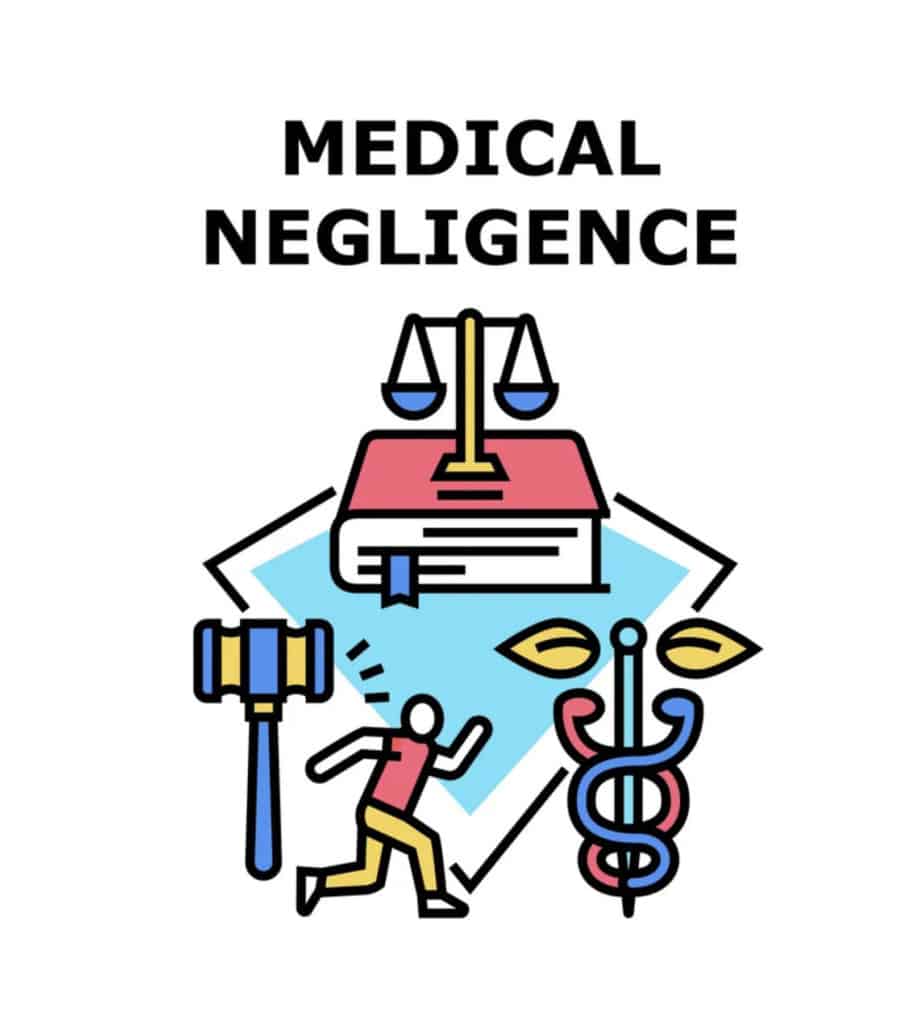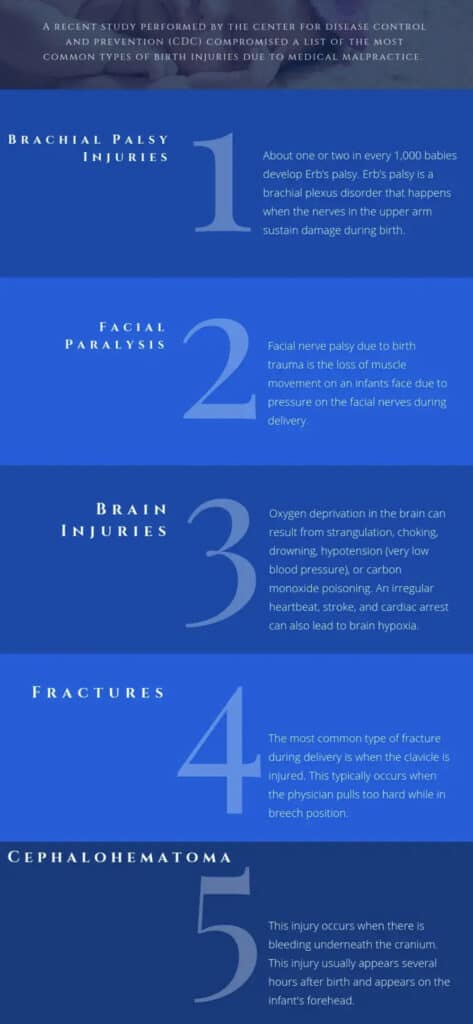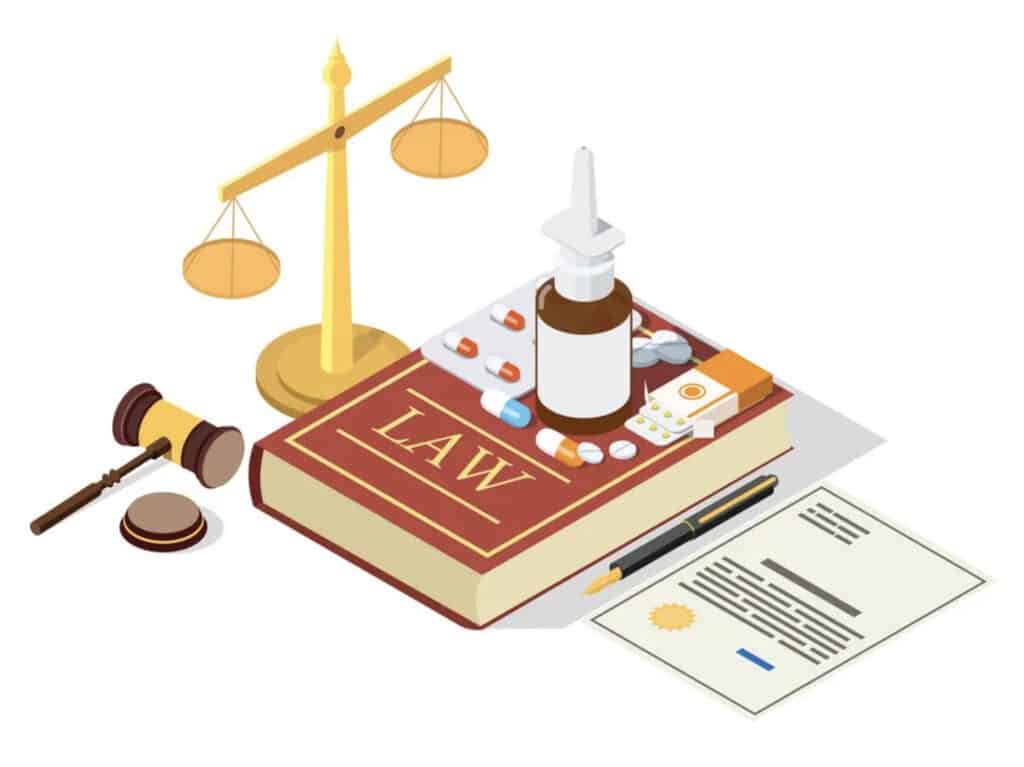Medical Negligence law in Bangladesh
In Bangladesh, medical negligence has become a popular topic of interest and discussion. However, there is currently no precise and comprehensive legislation to prevent medical negligence. Currently, the vast majority of instances of medical negligence go unpunished, but frequently result in violence. As a result, the general public’s perception of the veracity of medical services is taking a downward turn, which is a frustrating situation.

Medical negligence is a clear violation of the right to health committed by professionals whose primary duty is to protect when an emergency occurs and health rights are at risk. The number of deaths attributable to medical negligence is not negligible. According to a study, medical errors are the third leading cause of death in the United States, after heart disease and cancer, and are responsible for at least 250,000 deaths annually.
Medical negligence in Bangladesh:
As for Bangladeshi statistics, Ain O Salish Kendra released a report in 2008 detailing 504 instances of medical negligence between June 1995 and September 2008. According to the Geneva Declaration of the World Medical Association, a member of the medical profession must solemnly pledge that the health of the patient will be the primary concern.
In contrast, medical malpractice implies culpable negligence in the field of medical science and poses a risk to the health and well-being of a patient who entrusts his or her well-being to a medical professional. Articles 18 and 32 of the Bangladeshi constitution, which guarantee the right to health and the right to life, are being flagrantly violated.

Article 32 of our Constitution protects “the right to life” as a fundamental right for its citizens. In addition, according to the fundamental principles of state policy, the state is obligated to provide “basic necessities of life,” such as food, clothing, shelter, education, and medical care, as well as to “raise the level of nutrition and improve public health.” Articles 15, 18, read in conjunction with Articles 31, 32, and 44 outline the constitutional remedies for the protection of health and life. Article 102 (writ petitions) of the United States Constitution allows for the enforcement of such rights.
Initial Stages includes the following steps:
- FIR in cognizable offence;
- Complain in cognizable & non-cognizable offence
- Investigation
- Charge Sheet or Final Report
- Naraji Petition
Proceeding Stage includes the following steps:
- Taking Cognizance
- Issuing Process
- Transfer of the Case
Trail Stage includes the following steps:

- Framing of Charge
- Plea & Conviction
- Hearing/Taking Evidence/Examination Etc.
- Judgment
Criminal Cases are tried before the Judicial Magistrate and/or the Session Judge court as per their nature and procedure.
1. Trail By Magistrate:
- Section 241 of CrPC: Procedure in Cases.
- Section 241A of CrPC: When accused shall be discharged.
- Section 242 of CrPC: Charge to be framed.
- Section 243 of CrPC: Conviction on admission of truth of accusation
- Section 244 of CrPC: Procedure when no such admission is made.
- Section 245 of CrPC: Acquittal or Sentence
- Section 247 of CrPC: Non-appearance of Complainant
- Section 2418 of CrPC: Withdrawal of Complaint
- Section 249 of CrPC: Power to stop proceedings when no complainant.
2. Trail by Court of Session:
- Section 265A of CrPC: Trail to be conducted by Public Prosecutor
- Section 265B of CrPC: Opening Case for Prosecution
- Section 265C of CrPC: Discharge
- Section 265D of CrPC: Framing Charge
- Section 265E of CrPC: Conviction of Plea of Guilty
- Section 265F of CrPC: Date for prosecution evidence
- Section 265G of CrPC: Evidence of Prosecution
- Section 265H of CrPC: Acquittal
- Section 265I of CrPC: Entering upon Defence
- Section 265J of CrPC: Arguments
- Section 265K of CrPC: Judgment of Acquittal or Conviction
Post Trail Stage includes the following Step:
- Execution of Sentence
In general, criminal complaints are filed against doctors alleging the commission of offenses punishable under Section 304A or Sections 336, 337, or 338 of the Bangladesh Penal Code 1860 alleging rashness or negligence on the part of the doctors resulting in the death or injury of the patient to varying degrees. However, Sections 80 and 88 of the Penal Code provide defences for doctors who have been accused of criminal liability.
[doc id=373222]
Bangladesh’s Medical and Dental Council
Bangladesh’s Medical and Dental Council is the governing body for doctors and other health professionals. According to the বাংলাদেশ মেডিকেল ও ডেন্টাল কাউন্সিল আইন, ২০১০, if a medical practitioner or dentist is found guilty of professional misconduct, the council may deny that person registration (Section 23).
Due to professional misconduct, the council may also order the removal of the name of any registered physician or dentist from the registration, either permanently or for a specified period.
In addition, Section 5(a) of the Code of Medical Ethics states that gross negligence on the part of medical and dental practitioners in the performance of their duties to their patients may constitute misconduct sufficient to justify suspension or removal from the registrar.
The Medical Practice and Private Clinics and Laboratories (Regulation) Ordinance of 1982 granted the director general of health services supervisory authority. The director general of health services or any officer delegated by him shall have the authority to inspect any chamber of registered medical practitioners, private clinic, private hospital, or pathological laboratory to determine whether they have violated or failed to comply with any provision of this ordinance (Section 11).
If the director general determines that they have violated any provision of this ordinance, he may recommend to the government, in the case of a medical practitioner, that he be barred from engaging in private medical practice, in the case of a private clinic or private hospital, that its license be revoked, and in the case of a pathological laboratory, that it be closed.
Patients’ rights are similarly protected and enforced in cases of medical negligence, with particular reference to the Consumer Rights Protection Act of 2009. This act defines’service’ as, among other things, health services made available to consumers in exchange for payment (Section 2 (22) of the act), but not free services.

Punishment for negligence
Now they are able to file a lawsuit under this act because a medical patient is considered a consumer and medical institutions or professionals are service providers under Section 2, despite the fact that this is not explicitly stated in the act. However, courts have accepted such cases. This act’s section 45 addresses the penalties for failing to sell or deliver the promised product or service.
It stipulates imprisonment for a term not to exceed three years, a fine not to exceed Tk 2,00,000, or both. In Section 52, it is stated that anyone who violates the rules or regulations of this act or law in a way that endangers the life or security of a consumer will be punished with imprisonment for a term not to exceed one year, a fine not to exceed Tk 50,000, or both.
The section that can be directly related to medical negligence is Section 53, which states that if a service provider causes damage to the money, health, or life of a service recipient through negligence, irresponsibility, or carelessness, he will be punished with imprisonment for a term not to exceed three years, a fine not to exceed Tk 2,00,000, or both.
However, these punishments are insufficient because the amount of the fine is often disproportionate to the loss or damage caused by the service providers.
In addition, if a consumer wishes to file a complaint under Section 60 of the Consumer Protection Act of 2009, he or she must first file a complaint with the director general or an authorized representative of the department within 30 days of the accrual of the cause of action. And according to Section 61, the magistrate will not take cognizance of any crime if the charge sheet is not submitted within ninety days of the complaint being filed.
Medical Negligence and Consumer complaint:
It means that even if a consumer suffers a loss, the consumer cannot file a complaint directly with the magistrate, and the magistrate will not take cognizance until the magistrate receives the charge sheet within 90 days from the authorized person. As a result, consumers become frustrated or lose interest because this procedure is complicated and appears inconvenient. In the case of private sectors, the director general has the authority to identify health-nursing care deficiencies but cannot take preventative action.
Only the health secretary and the director general of the health services directorate general will be informed. As a result, there is a significant barrier to punishing medical professionals working in the private sector, and the incidence of professional negligence in private clinics continues to rise.
The term’medical profession’ has not been added explicitly to Section 2, whereas it was added to Section 2 (1) (o) of the Consumer Protection Act of India 1986 in 1995. In the case Indian Medical Association v. VP Shantha (3 CPR (1995) 412), the Supreme Court determinedly added the health profession to the scope of the Consumer Protection Act. In fact, this term should be added to our statute so that it is clear that victims of medical malpractice must go to the consumer court to seek justice.
Although it has been questioned whether medical care should be viewed as a product, medical negligence litigation has been credited with bringing about safer practices in the provision of health care in neighboring India, where cases of medical negligence have been significantly reduced.
Therefore, amendments may be made to the Consumer Protection Act of Bangladesh to make it effective and adaptable to medical negligence litigation, so that the state may provide patients with assurance of improvement in the health care delivery system addressing the public health’s common good.
Tort actions and Medical Malpractice:
Tort actions were recently introduced in Bangladesh, but they are not yet well-established in our legal system. This is due to the fact that tort law is not codified and because Section 9 of the Code of Civil Procedure 1908 authorizes a civil court to hear all civil cases and gives courts the authority to apply tort law as an inalienable part of the principles of justice, equity, and good conscience.
In tort law, as opposed to criminal law, a claim is an action for the recovery of damages (i.e., monetary compensation) that seeks to compensate the harms suffered by a person as a result of the intentional or unintentional act of another, as opposed to sending the wrongdoer to prison.
The individual claiming damages (the claimant) may be the primary or secondary victim. Negligence is the legal term for the failure to do (or to refrain from doing) something that a “reasonable person” would have done in the same circumstances, which has been interpreted to protect others from foreseeable risks of harm. When medical negligence occurs, negligence claims may be filed against physicians and other medical professionals.

In Bangladesh, it is a relatively new trend to pursue damages as a tort claim solely on equitable grounds, without relying on statutory provisions. We hope to become familiar with the application of the tort law principle in medical negligence cases more frequently than in the past, and then we can expect to ensure accountability for medical negligence on a larger scale.
Under the current legal structure, there is no codified law on medical negligence, and in the absence of a developed tort regime, the laws on negligence are scattered and general. The sections 304A and 336 of the Penal Code 1860 penalize and define negligence as conduct that “endangers human life or the personal safety of others.”
The Bangladesh Medical and Dental Council Act of 2010 penalizes those who falsely represent themselves to be medical or dental practitioners (section 28), (ii) use any such name, designation, description, or symbol that others could reasonably believe to be true (section 29), and (iii) prescribe medication that has not been approved by the government (section 30).
In addition to penalizing negligence, Sections 52 and 53 of the Consumer Protection Act of 2009 significantly empower the Director-General of the Directorate for Consumer Rights Protection to take action against “anti-consumer activities.”
Lack of specificity in the jurisdiction of Medical Malpractice law in Bangladesh:
Despite these legal provisions – albeit dispersed – at our disposal to secure justice, our legal system has yet to develop a jurisprudence allowing recourse for citizens who have been negligently treated by healthcare service providers. In recent years, however, courts have been proactive in compensating victims in egregious cases of medical negligence. In 2011, Mr. Justice AHM Shamsuddin Chowdhury Manik and Mr. Justice Jahangir Hossain ordered Labaid Hospital to compensate the widow of Dhaka University professor Mridul Kanti Chakrabarty, who died due to delayed medical treatment and alleged hospital negligence.
In 2017, the Suo Moto ruling by Madam Justice Salma Masud Chowdhury and Mr. Justice AKM Zahirul Haque ordered respondents to pay the victim Tk. 9 lakhs in compensation for falsely representing himself as a certified doctor and performing surgery on the victim while leaving pieces of gauge inside her stomach, causing her interminable suffering and additional medical expenses.
In jurisdictions such as the United Kingdom, however, there are established bases for calculating claims arising from personal injury and medical negligence. Instruments such as the Judicial College Guidelines (JCG) and Ogden tables standardize the amount of compensation for different degrees of injury to different parts of the body and take into account other factors, such as the loss of income and follow-up expenses of victims recovering from the negligent act.
In India, despite similarly dispersed laws, the Court and the Maharashtra Medical Council (MMC), a quasi-judicial body with significant authority, regularly hear medical negligence cases.
Under the Consumers Rights Protection Act of 2009, the specialist is not liable for every injury sustained by a patient due to medical negligence.

As it were, he is responsible for the consequences of a breach of his obligation. After establishing the existence of an obligation, the aggrieved party must then demonstrate the breach of obligation and its cause. Different sections of the Consumers Rights Protection Act of 2009 contain corrective amendments to safeguard consumer rights.
Section 52 specifies the punishment for any act that endangers the life or safety of consumers. Section 53 penalizes the act of carelessness that results in loss of life or bodily harm. In addition, section 45 provides penalties for the sale or delivery of substandard services.
According to the Bangladesh Medical and Dental Council Act of 2010, medical malpractice is:
According to Section 23 of the Bangladesh Medical and Dental Council Act of 2010, the Council may revoke the registration of any doctor, dentist, or medical assistant who is found to be responsible for improper conduct or violation of this act. However, the act itself has not clearly communicated the offenses committed by the specialist. In addition, Section 30 outlines the penalties for endorsing prohibited drugs.
Conforming to the Contract Act of 1872 for breach of contract or benefit, if the patient is entitled to compensation for any loss or damage caused by the contract violator. This compensation is not to be provided for any indirect or remote loss or harm sustained as a result of the breach.
The Specific Relief Act of 1877 can also issue temporary and permanent injunctions against medical professionals or armies that violate legally binding obligations. In addition, under the law of tort, carelessness as a fortuitous or gracious obligation, restorative professionals or authorities may be liable for damages.
A number of statutes are either directly or indirectly associated with medical practice. The Vaccination Act of 1880, the Drugs Act of 1940, and the Eye Surgery Act (Restriction) The statute, 1960 The Pharmacy Ordinance of 1976, the Drug (Control) Ordinance of 1982, the Medical Practice and Private Clinics and Laboratories (Regulation) Ordinance of 1982, the Bangladesh Unani and Ayurveda Practitioners Ordinance of 1983, the Human Organ Transplantation Act of 1999, etc.
FAQ about Medical Negligence law in Bangladesh:
| Question | Answer |
|---|---|
| What is medical malpractice in Bangladesh? | Medical malpractice in Bangladesh refers to a professional negligence by a healthcare provider in which the treatment provided falls below the accepted standards of practice in the medical community and causes injury or harm to the patient. |
| What is the legal definition of medical malpractice in Bangladesh? | Medical malpractice in Bangladesh is defined as any act or omission by a healthcare provider in the provision of medical treatment that falls below the standard of care owed to the patient and results in injury or harm. |
| Who can be held liable for medical malpractice in Bangladesh? | In Bangladesh, healthcare providers including physicians, nurses, hospitals, and clinics can be held liable for medical malpractice. |
| What is the statute of limitations for filing a medical malpractice lawsuit in Bangladesh? | The statute of limitations for filing a medical malpractice lawsuit in Bangladesh is typically three years from the date of the injury or death caused by the malpractice. |
| What evidence is needed to prove medical malpractice in Bangladesh? | To prove medical malpractice in Bangladesh, the following types of evidence may be used: medical records, expert witness testimony, and testimony from other healthcare providers. |
| What is the standard of care in medical malpractice cases in Bangladesh? | The standard of care in medical malpractice cases in Bangladesh refers to the level of care that a reasonably prudent healthcare provider would have provided under similar circumstances. |
| What is the role of the Bangladesh Medical and Dental Council in medical malpractice cases? | The Bangladesh Medical and Dental Council is responsible for investigating complaints of medical malpractice and determining whether a healthcare provider has violated the standard of care. |
| Can a patient sue a healthcare provider for medical malpractice in Bangladesh? | Yes, a patient or their family members can sue a healthcare provider for medical malpractice in Bangladesh if they can prove that the provider’s actions or inactions resulted in injury or harm. |
| What is the process for filing a medical malpractice lawsuit in Bangladesh? | The process for filing a medical malpractice lawsuit in Bangladesh typically involves obtaining the necessary evidence, consulting with an attorney, and filing a complaint in the appropriate court. |
| What is the potential outcome of a medical malpractice lawsuit in Bangladesh? | The potential outcome of a medical malpractice lawsuit in Bangladesh can include monetary damages for medical expenses, lost wages, and pain and suffering, as well as non-monetary relief such as an apology or changes to healthcare practices. |
Hire the best Medical Negligence law firm in Bangladesh:
Tahmidur Rahman Remura Wahid is one of the leading chambers on crime and Medical Negligence litigation law firm in Bangladesh. Mr. Wahid and Ms Remura Wahid has been engaged as a defence counsel in numerous bail matters and for quashing of proceedings.
In particular, all the criminal prosecution lawyers in Tahmidur Rahman Remura Wahid Law firm is vastly skilled in dealing with anti-corruption and criminal litigation cases in regards to the specific sectors mentioned in this article. Our Partners have combined 31 years of experience and he is considered as one of the best criminal lawyers in the Magistrates Court and Sessions Court.
For further information, visit the following links:



